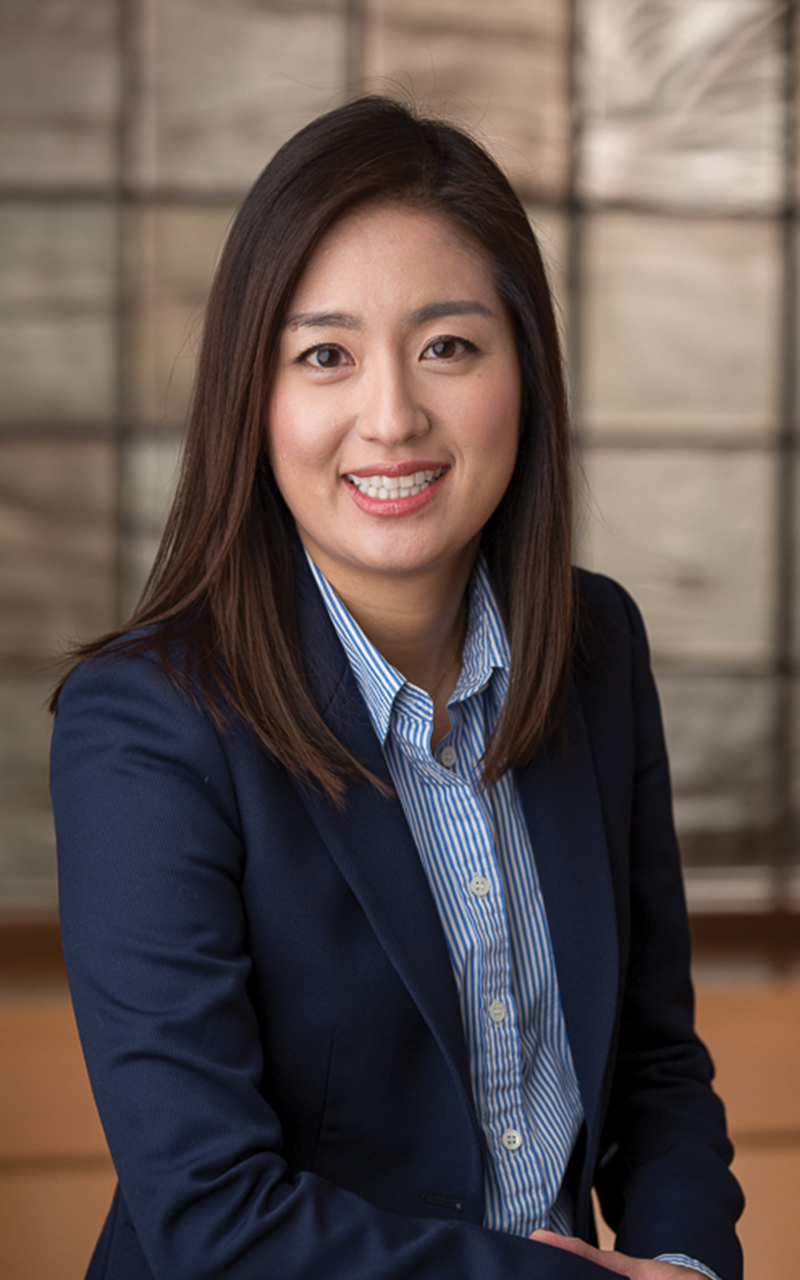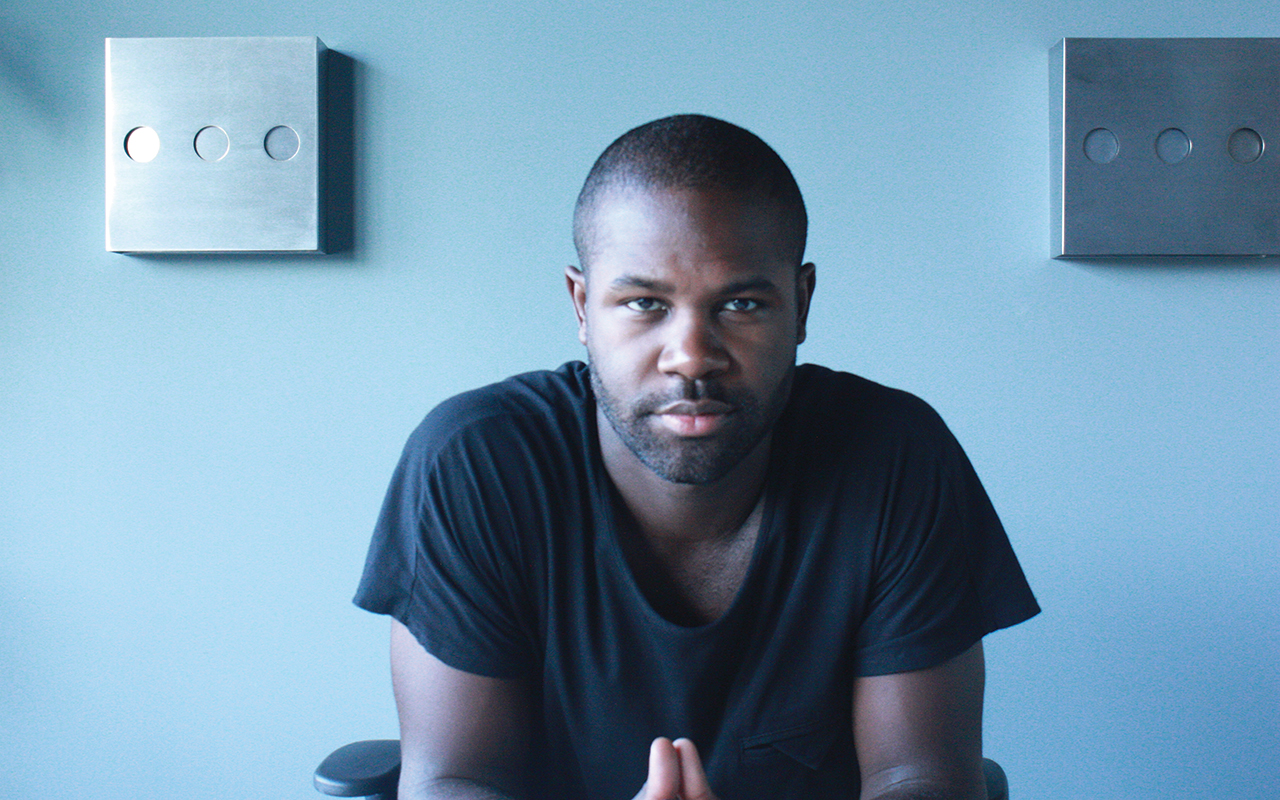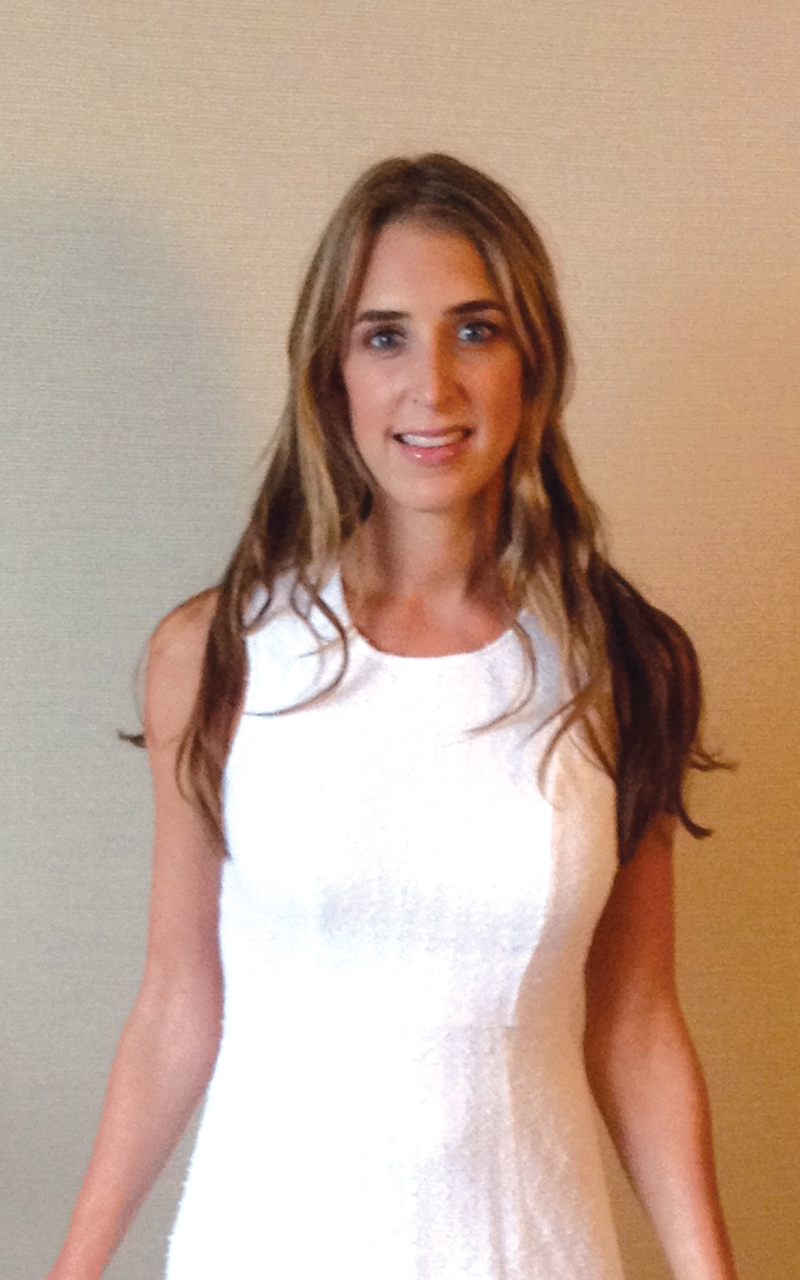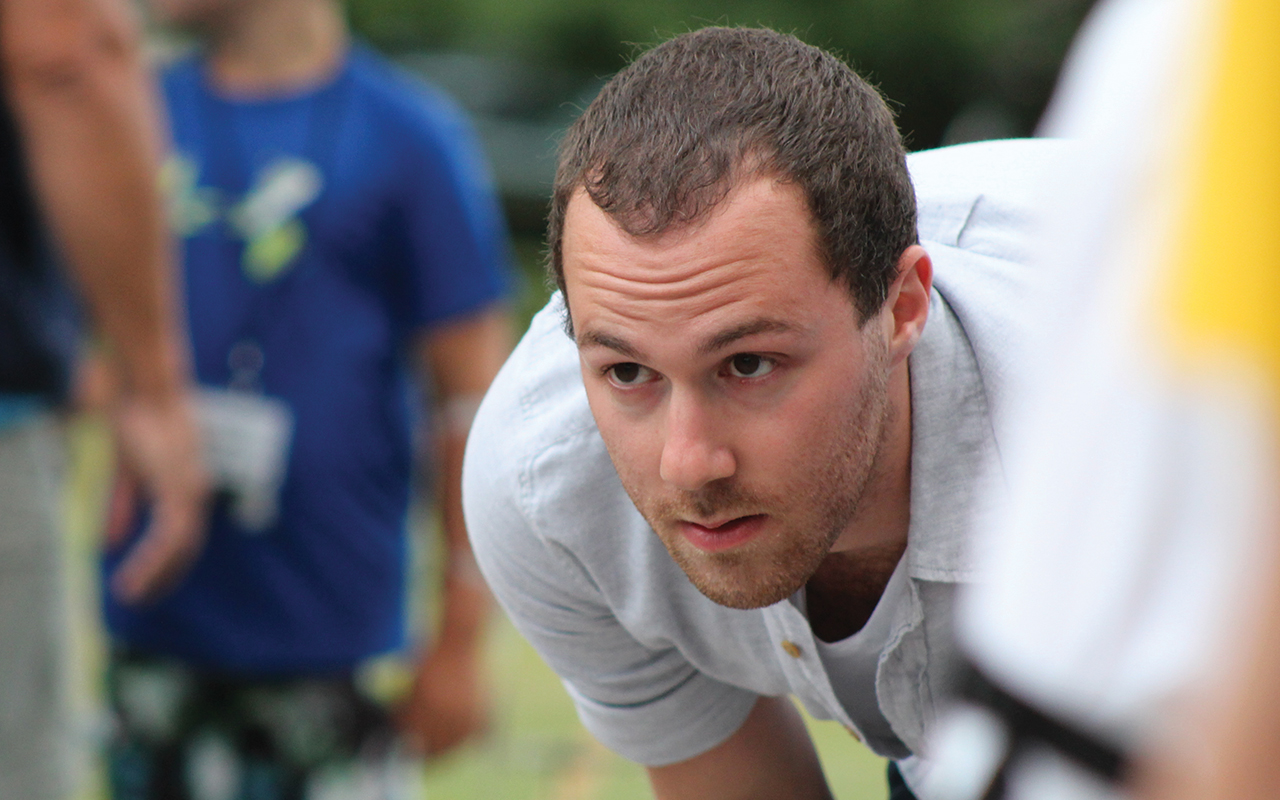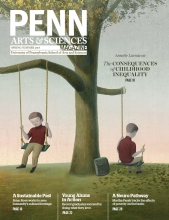When graduation time rolled around, Josephine Shin, C’01, started getting a lot of advice—not all of it good. “Everyone told me how women’s studies majors don’t generally put in for finance jobs,” says Shin. “But instead of limiting my options, it’s what made me stand out.” Then there’s Kiel Berry, C’05, the successful banker who now spends his days shaping a world-renowned rock group’s creative brand. What do they have in common? They’re both products of a Penn Arts and Sciences education they say provided them with the skills and knowledge to succeed in whatever they endeavored.
Ask any young Penn alumnus and they can readily recall moments from their undergraduate studies that had a profound impact on their ability to adapt to evolving career choices.
We spoke to five young alumni about how Penn Arts and Sciences helped prepare them to follow their callings.
Josephine Shin, C’01
For Josephine Shin, there is no typical day on the job. As a portfolio manager and credit analyst for global alternative fixed income asset management firm Alcentra in New York, she thrives in fast-paced, high-pressure environments. “It’s intense because at the end of the day it is performance-driven and every day something new happens with the companies we invest in,” says Shin. “You have to make smart, educated, and timely decisions that will best serve your clients.” Her secret weapon, she says, is her eagerness to learn and her ability to thrive outside of her comfort zone—skills she attributes to her liberal arts education at Penn.
“I didn’t go to college at age 17 to be a banker, doctor, or a lawyer,” says Shin. “For me, it was about exploring what interested me, and being in the College at Penn allowed me to do just that.”
That interest turned out to be women’s studies and sociology, fields that hadn’t even been on Shin’s radar before she explored her elective choices freshman year. “There was no doubt in my mind when I took my first women’s studies course that it was what I wanted to pursue,” says Shin. “It pushed me to think about the things that I had taken for granted in my life. Spending those years debating these notions with an open mind prepared me for life after college, and to be comfortable challenging conventional ways of thinking.”
It was her unique liberal arts background that got her in the door when she started applying to financial firms, she says. “I credit my confidence in my own voice, which is especially important in a male-dominated industry, to my choice of studies.” And even after 15 years in the financial sector, Shin says, she still loves what she does.
“It’s important that we’re not just surrounded by people that think like each other all the time,” Shin says. “As a College graduate I am grateful for those four years I spent studying something of interest in a nurturing environment, and I hope to reciprocate by providing opportunities to those who are interested in paving their own paths.”
Kiel Berry, C'05
For as long as he can remember Kiel Berry has been engaged in an internal struggle. “I constantly bounce between the right- and left-brain,” laughs Berry, an economics major. “I always had this creative side, but I could never really find a way to get paid for it.”
Leaving a banking career with JPMorgan behind, Berry now runs Machine Shop, an innovation company for rock band Linkin Park, which has sold over 60 million albums worldwide and won two Grammy Awards. The venture combines a host of talents Berry says he cultivated during his studies in the College.
“When I first came to Penn it was a bit of a culture shock, so I just tried to soak up all types of amazing classes,” says Berry, a self-described global citizen who spent his formative years in Paris, France. “The fact that I could take international economics and study the history of jazz at the same time was really important. I was able to get an understanding for the business nuances of the markets I would work in, as well as references for the music genres of deep house and funk that I would end up DJing later in life.”
Berry, who has been a musician from a young age, and currently performs as one half of DJ duo Laedi, says his work with Linkin Park has provided him the opportunity to work in music while also using his economics background to be at the forefront of nontraditional business initiatives. He cites a recent fashion capsule collection release in collaboration with the company Square, which produces technology that allows anyone to accept payments on their mobile devices, as one of his most recent initiatives.
“We mobilized select fans and set them up with the tools they needed to promote the new album and the fashion line, then let them act as vendors,” says Berry. “We launched the album simultaneously in 19 markets around the U.S.” Under his lead, Machine Shop is harnessing everything from fashion and design to games and movies in an effort to ensure the band is reaching as many fans as possible. More recently, Berry helped launch the venture capital arm of Linkin Park, Machine Shop Ventures, to invest in startups and tech companies they believe in.
In 2013, Berry decided to chronicle his experiences in a book he hopes will inspire other young professionals. For Stunt: Navigate the Journey, he interviewed millennial entrepreneurs from all around the world. “Instead of writing an autobiography, I wanted to teach young people they can embrace a nontraditional path to reach their ideal lifestyle and dream career,” says Berry. What comes next? “You never know with me. I like to break glass and run rogue into new terrain—that’s what I stand for.”
Amanda Golden Mintzer, C’06
On a lark, Amanda Mintzer decided to sign up for a World War II history class her freshman year at Penn. “My professor for the course was Thomas Childers, and I fell in love with his style of teaching. Every day it was like listening to a great storyteller,” she says. “There were a lot of older Philadelphians who would come in to audit the class, and you could see them in the front row nodding their heads as he vividly described the turbulent times they had lived through.”
As graduation approached, Mintzer faced the age-old question: “What am I going to do with my life?” Her answer was to follow in the footsteps of her professor and become a history teacher. She enrolled in New York City Teaching Fellows, a two year program that begins with an intensive boot camp designed to gear up young teachers to work with underserved populations. Before long, Mintzer was in front of a classroom full of seventh- and eighth-graders, teaching what she had come to love in college.
But it turned out Mintzer’s favorite part of being a teacher was in-between classes, when her students hung around to talk. “A lot of my students needed more social and emotional support than a teacher could provide … that’s when I realized then that I wanted to make a move.” So Mintzer embarked on the second half of her educational journey, embracing her Penn minor in psychology. After three years of working in public school, she enrolled in the Ferkauf Graduate School of Psychology to pursue a career in child and adolescent mental health. Now, for her post-doctoral fellowship she is working in the Anxiety and Mood Disorders Center at the Child Mind Institute in New York.
“When your foot is broken, people have sympathy for you. When you say you’re depressed, people don’t really want to talk about it,” says Mintzer, a cognitive behavioral psychologist who specializes in a range of anxiety disorders, including selective mutism. “These kids might be fabulous little chatterboxes at home, but they are unable to speak at school or in the community. They often get labeled as shy, but selective mutism is an anxiety disorder that children do not simply grow out of.” Mintzer says early intervention is best to break the cycle of negative reinforcement that perpetuates the pattern of not speaking.
She also teaches coping skills to help children learn how to gradually face their fears. “For kids with social phobia, we’ll walk around the city wearing wigs to draw negative attention towards ourselves so that they can learn to tolerate the distress instead of avoiding it,” she says. “When you avoid what you are scared of, you never learn that you can face your fears.”
Mintzer credits her unique career trajectory to her time at Penn. “I have been fortunate to be able to combine the all the things that stood out to me in college, especially my background in education and history, and find something I really love doing.”
Dennean Davis, C’03
In Dennean Davis’ line of work, you need to know what consumers want before they know it themselves. And Davis, Senior Account Executive in digital brand strategy at Google, says it was the psychology program at Penn that gave her the tools she needed to excel in understanding people’s needs.
“I’ve always been curious about what makes people tick. In the new digital world, there is a wealth of user information that we have access to in order to help clients understand who their consumers are and how they want to be spoken to,” says Davis. “With millennials especially, they aren’t interested in having messages pushed out to them—but when they do decide to seek information out, it needs to be readily available.”
Davis’ first two roles out of college were in the pharmaceutical industry, at Sanofi-Aventis and Novartis Pharmaceuticals. The healthcare field spoke to her second major, Health and Societies. “Many of the courses I took focused on under-privileged communities and the outages that existed when it came to access to care,” she says. “So when I went into the pharmaceutical industry out of college, I was very interested in how they provided aid and treatment to these communities.” From there, Davis transitioned to a brand management role at Johnson & Johnson, where she focused on product marketing in the consumer healthcare space.
During her time at Johnson & Johnson, it quickly became clear to Davis that the future of marketing was in digital. That’s when she decided to make the move to Google. “One of the biggest mistakes you can make in my line of work is not changing with consumers as they grow and evolve,” she says. “It’s critical that you unpeel the layers and take an in-depth look at people’s habits and needs if you want to know what drives the consumer’s mindset and connect with them on an emotional level. There’s no better place to do that than online.”
Davis says that one of the many things she values about her current company is the diverse set of people she gets the opportunity to work alongside every day. She credits her time in the Arts and Sciences program at Penn as uniquely preparing her to engage with a diverse team. “At Penn, students came from all different backgrounds and I quickly understood how important diverse thinking is when it comes to finding the best solution to a problem,” says Davis. “At my job it’s very difficult to look around and say this is what a typical person at this level looks like. So being able to appreciate different schools of thought and approaches to solving complex problems is a major key to success.”
Zachary Sergi, C’10
Like many aspiring young writers, Zachary Sergi dreamed of penning the next Great American Novel. Little did he know that a course during his junior year at Penn would steer him in a different direction entirely: Hollywood.
“I applied to Penn with an eye to the creative writing program, but then my junior year I took a unique class with TV director and writer Andrew Wolk, C’70, who was a visiting instructor at the time,” says Sergi. “We would have these epic sessions where he would help us write our own screenplays. I loved TV and movies, but it just never occurred to me that this was something I could actually do as a career. It marked a switch for me.”
Sergi had interned for popular author James Patterson's brand management team his first two summers at Penn, but after the course with Wolk, he decided to move to L.A. to pursue his television writing career. “I had done a lot of networking when I applied for internships through Penn’s RealArts@Penn program. Mingo Reynolds, the director there, was phenomenal at creating opportunities for me,” Sergi says. “So I ended up going to California to work on a movie called Free Birds.”
His newfound passion for television writing hadn’t diminished his love for fiction writing, though. Sergi’s big break came when he joined an experimental think tank for the Disney Channel. “I got the job based on a pilot I had written my senior year under the mentorship of Mark Rizzo, C’92," he says. “It was me and five other young writers brainstorming new ideas for original movies.” While he was there, Sergi was introduced to his first manager, who helped land him a gig at publisher Choice of Games.
“They wanted to modernize the old choose your-own-adventure books and turn them into apps you could interact with,” Sergi says. “I had always been a huge comic book fan so I pitched this idea about an American Idol for superheroes.”
Sergi took a year to write Heroes Rise. “I thought maybe my parents and friends would read it,” Sergi laughs. “Long story short, it sold well and now I’m working on a fourth book. We’ve sold 130,000 copies, and we have this kind of a cult following that really allows me to connect with readers.”
Sergi recently completed work on a television pilot that is being shopped to networks with a production company attached. “Penn taught me to be very entrepreneurial, which is crucial because writing for yourself and writing for a career are two very different things.”

